Description
ABSTRACT
An Appraisal of the EU-ACP Cotonou Partnership Agreement
Kingsley N.O. Onu*
In June 2000, the EU and the African, Caribbean and Pacific Group of States (ACP) signed a revolutionary economic pact commonly referred to as the Cotonou Partnership Agreement (CPA) which was meant to last for twenty years. The principal objective of the agreement is to see to the eradication of poverty in the ACP states, and the gradual integration of the ACP states into the global economy. The agreement has been revised in 2005 and 2010. This article examines the provisions of the agreement and how the parties have fared under it. The article finds that the agreement retained the non-reciprocal trade nature of the earlier Lomé Agreement. The CPA was meant to serve as a precursor to the Economic Partnership Agreement which proposes reciprocal trade relations between the two parties. The article finds the agreement anchored on five pillars of political dimension, participatory approaches, poverty reduction, trade and financial cooperation. The article argues that the ACP States have not profited much from the CPA despite the lofty hopes that it professes. Eighteen years after the EU-ACP trade pact, 39 out of the 70 ACP states remain among the Less Developed Countries in the world. The article recommends that reciprocity should be based on achievement of human-centred socio-economic indicators in ACP states and thus urges the adoption of the African Union proposal for Common and Enhanced Trade Preference System (CETPS).
Keywords: Cotonou Partnership Agreement, Economic Partnership Agreement, African Caribbean Pacific States, Enhanced Trade Preference System.
INTRODUCTION
There is a saying that no man is an island. The above statement stands true for nation-states also, as no nation has ever successfully developed with closed borders. The saying shows the inevitability of trade relations among nations. The European Union (EU) in a bid to foster its economic tie with their former colonies in Africa, Caribbean and the Pacific (ACP)1 proposed an economic treaty with them on a reciprocal basis,2 aimed at helping to eradicate poverty among the ACP nations and to integrate them into the global economy gradually. The Cotonou Partnership Agreement (CPA)3 was…
* LL.B (HONS) (EBSU), BL (Yenagoa), LL.M (Ibadan), PNM, NIM. Lecturer, Faculty of Law, Adeleke University, Ede, Nigeria; and a PhD candidate at Faculty of Law, University of Ibadan, Ibadan, Nigeria.
- See J Akandji-Kombe, ‘Introduction to the Cotonou Agreement’ (2004) 1 Human Rights in Africa in C Heynes (ed) 703, 705 cited in NJ Udombana ‘Back to Basics: The ACP-EU Cotonou Trade Agreement and Challenges for the African Union’ (2004) 40(1) Text International Law Journal 59, 63.
- That is a creation of a Free Trade Area (FTA).
- Cotonou Partnership Agreement (2000, 2005 revised versions). accessed 6 June 2017.

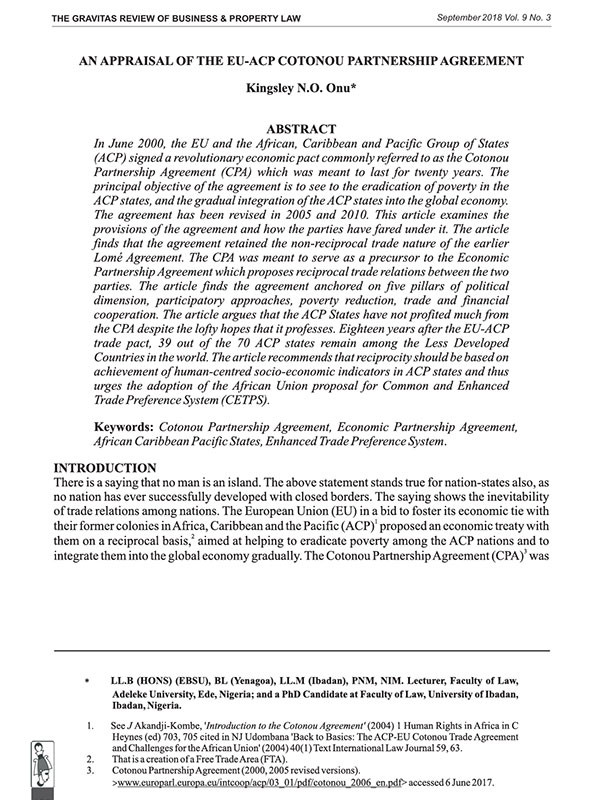
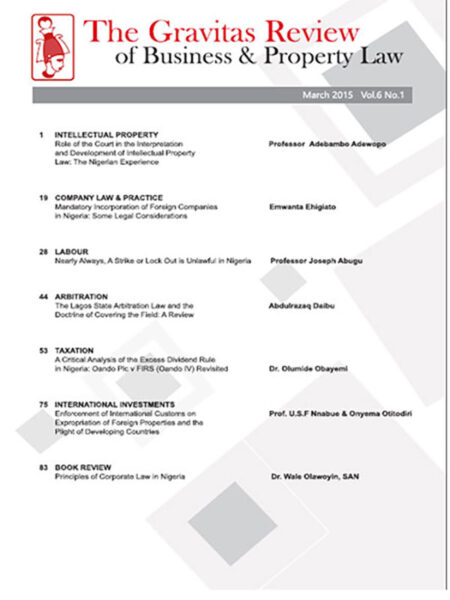
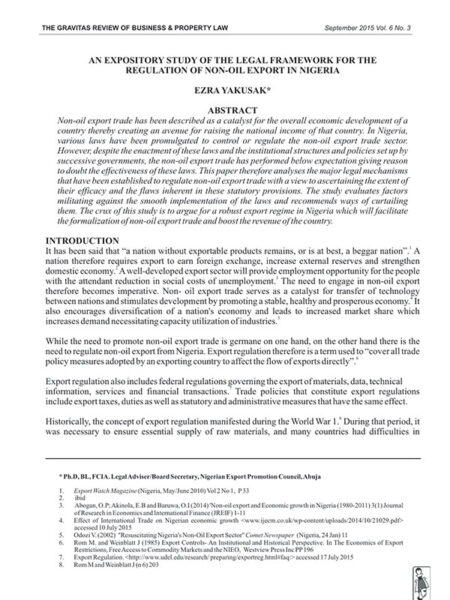
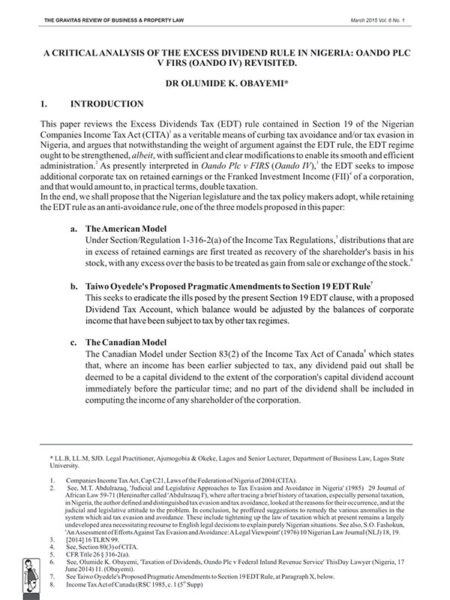
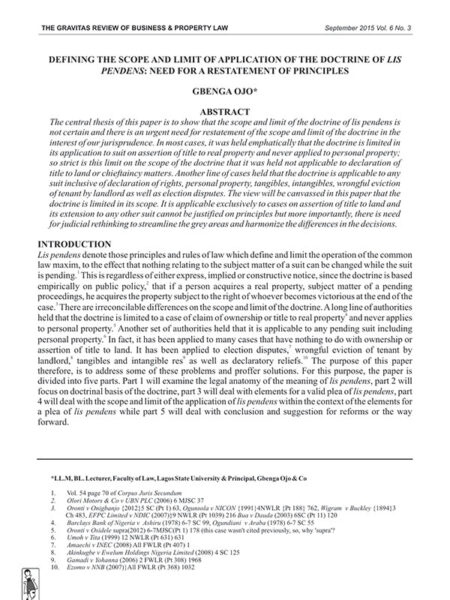


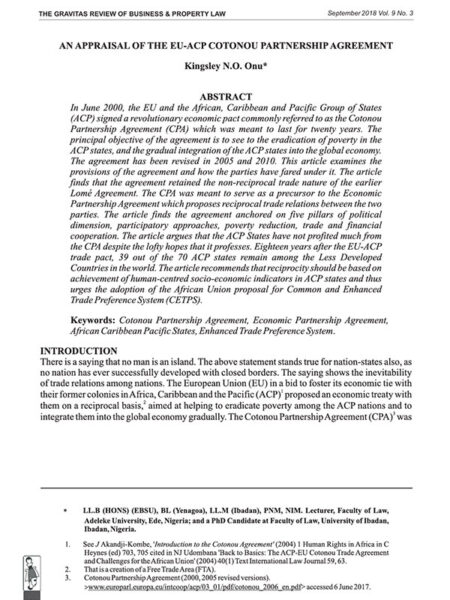
Reviews
There are no reviews yet.